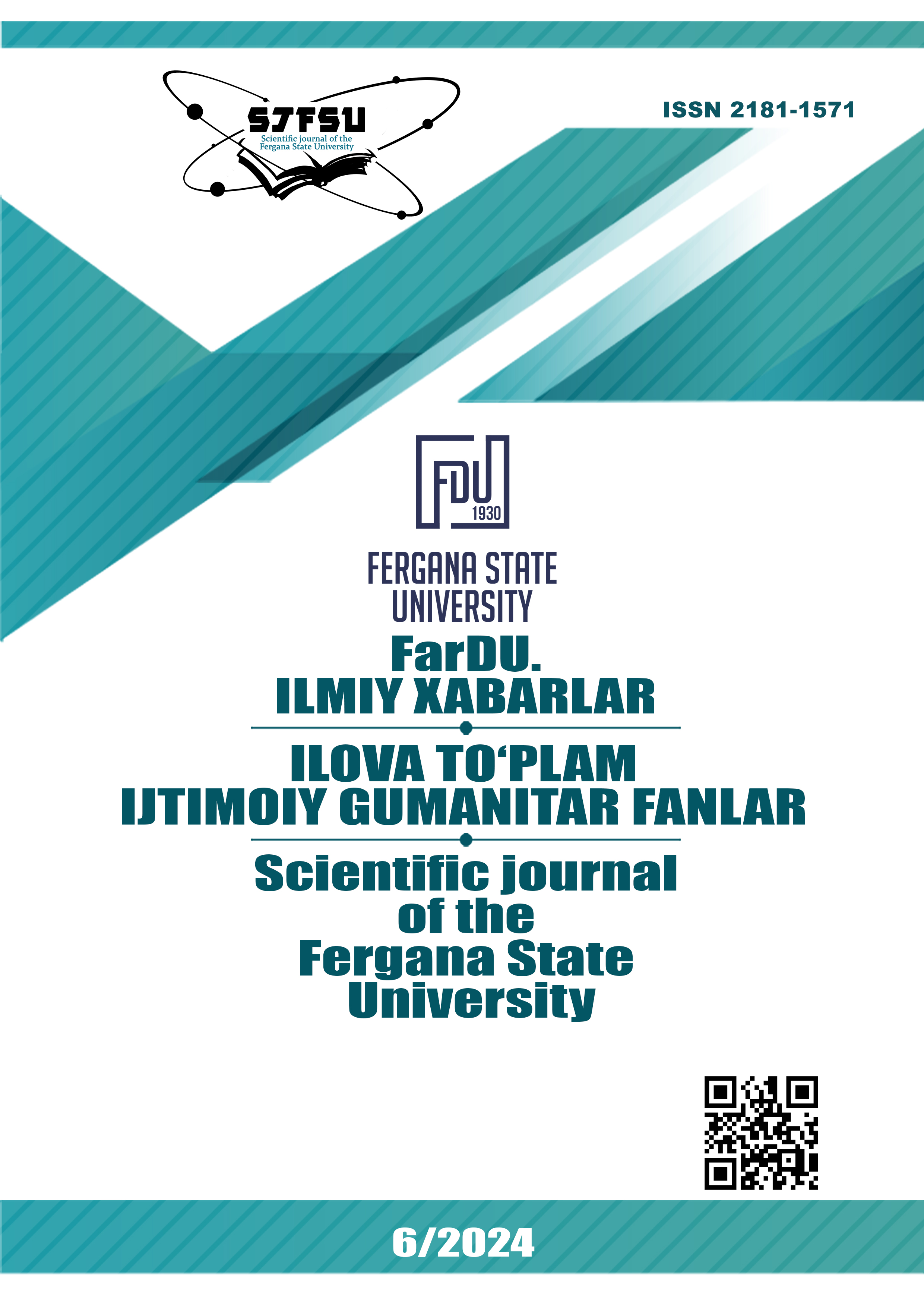O‘ZBEK VA INGLIZ TILLARIDAGI LANDSHAFT TERMINLARINING QIYOSIY TAHLILI
Keywords:
landscape terminology, lexical correspondences, cultural perspectives, environmental understandings, semantic depth, cultural resonance, loanwords, cultural connotation, cross-cultural communication.Abstract
This article presents a comparative analysis of landscape terminology in English and Uzbek, focusing on the vocabulary used to describe geographical features and their associated cultural connotations. The research extends beyond simple lexical equivalence, delving into the semantic subtleties and pragmatic implications of differing word choices in each language. Employing a mixed-methods approach that integrates dictionary analysis with corpus-based research, the study aims to uncover both the similarities and divergences in how these languages conceptualize and classify landscapes. The analysis reveals not only variations in specific vocabulary but also highlights the broader cultural perspectives and environmental understandings embedded within the linguistic structures of English and Uzbek. This comparative framework illuminates potential challenges and opportunities for accurate translation and effective cross-cultural communication, particularly within the domains of environmental discourse and literary translation. The findings contribute to a deeper understanding of the intricate relationship between language, culture, and the environment, offering insights into how different linguistic systems reflect and shape our perception of the natural world. The study further suggests avenues for future research into the impact of linguistic differences on cross-cultural environmental awareness and the preservation of cultural nuances in translation.
References
Самохина Е.В. Репрезентация концептосферы "Lаnd" в английской лингвокулыуре: Дис канд.фил.наук. – Волгоград, 2010. – 246 с.
Гавриленко О.В. Когнитивное освоение ландшафта в британской и американской лингвокультурах: сравнительно-сопоставительное исследование: Дис. ... канд. филол. наук. – Владивосток, 2010. – 181-186 с.
Ивашкевич И.Н. Лексическая категоризация // Когнитивные исследования языка. – М.: Ин-т языкознания РАН, 2012. – 192 с.
Прохорова M.R. Цвет как основа характеристики человека в сравнительных словосочетаниях (на материале русского, английского и французского языков): Дис. ... канд. филол. наук. – Тамбов, 2010. – 61-65c.
Usmonova Sh.Y.(2023). О‘zbek vа ingliz tillаridа lаndshаft аtаmаlаrining struktur xususiyаtlаri. International Multidisciplinary Research in Academic Science (IMRAS) Volume. 6, Issue 07, 552-556 b
Usmonova Sh.Y.(2023). Comparative analysis of landscape terms in uzbek and English languages. Journal of research and innovative. May, 10-13 p
Оxfоrd Аdvаnсed Leаrner’s Diсtiоnаry оf Сurrent English
Downloads
Published
Issue
Section
License
Copyright (c) 2025 Scientific journal of the Fergana State University

This work is licensed under a Creative Commons Attribution-NonCommercial-NoDerivatives 4.0 International License.
How to Cite
Most read articles by the same author(s)
- , LANDSCAPE TERMS IN THE TERMINOLOGICAL SYSTEM OF THE UZBEK AND ENGLISH LANGUAGES , Scientific journal of the Fergana State University: No. 6- TOM (2023): SPECIAL ISSUE
- , SEMANTIC ANALYSIS OF LANDSCAPE TERMS IN UZBEK AND ENGLISH LANGUAGES , Scientific journal of the Fergana State University: No. 6- TOM (2023): SPECIAL ISSUE

